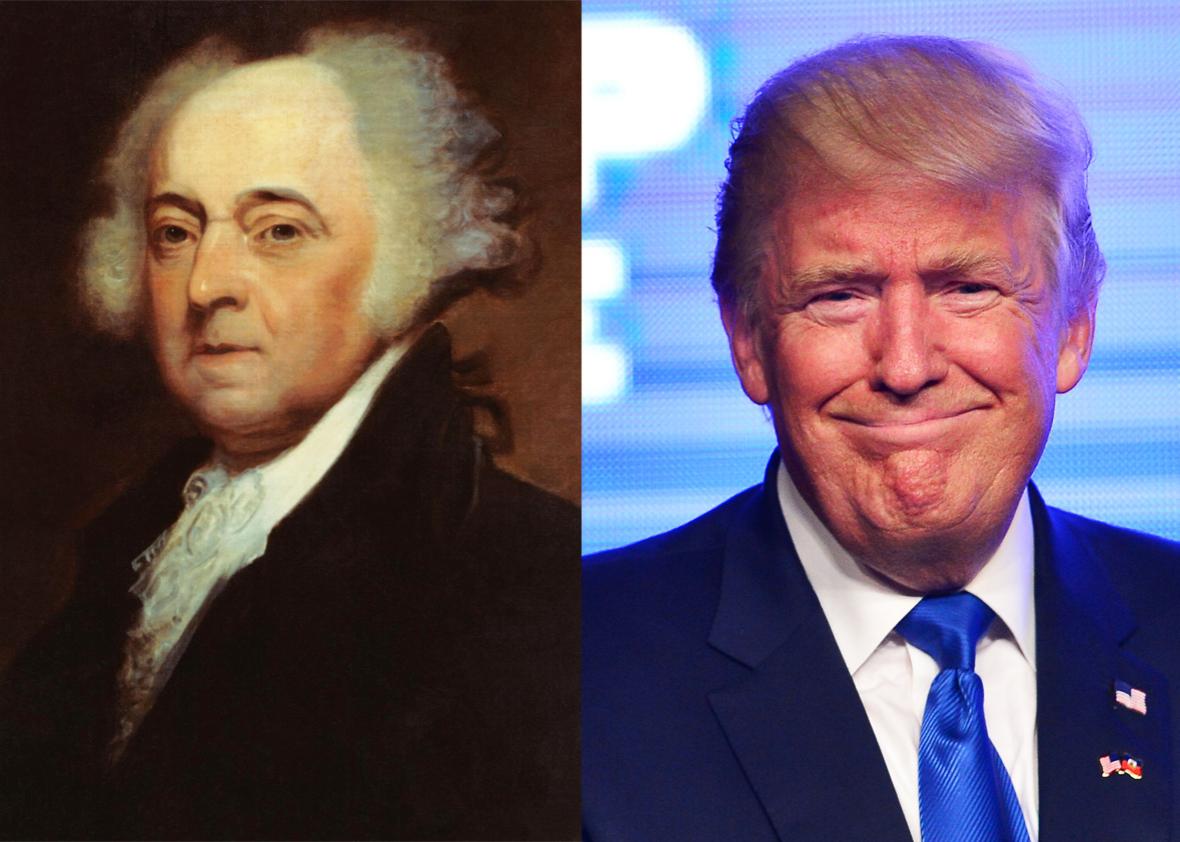In a speech on Monday, Donald Trump expressed his displeasure that Ahmad Khan Rahami, the suspect in the recent New York City bombings, will receive the full legal protections afforded to him by the federal Constitution. Trump specifically zeroed in on the fact that Rahami, a naturalized U.S. citizen, will presumably be provided a lawyer, as the Constitution requires. “He will be represented by an outstanding lawyer,” Trump complained with palpable chagrin. “His case will go through the various court systems for years and in the end, people will forget and his punishment will not be what it once would have been. What a sad situation. We must have speedy but fair trials and we must deliver a just and very harsh punishment to these people.”
What’s especially interesting about this quote isn’t that Trump opposes constitutional rights for U.S. citizens accused of terrorism; he has already made that quite clear. What’s fascinating is that the Sixth Amendment’s right to counsel is a bedrock principle of American legal history that actually predates the Bill of Rights itself. In 1770, soon-to-be founding father John Adams agreed to defend the British soldiers accused of committing the Boston Massacre. Decades before the Constitution enshrined the right to an attorney as a cornerstone of due process, Adams believed that even the most unpopular criminal defendants deserved counsel, no matter how ghastly their alleged crimes. Adams, who secured acquittals for most of the accused, later wrote that his defense was “one of the most gallant, generous, manly and disinterested Actions of my whole Life, and one of the best Pieces of Service I ever rendered my Country.”
James Madison supported Adams’ view of the right to counsel as a fundamental component of liberty. He included it in his earliest drafts of the Bill of Rights, and it was approved without serious controversy at ratifying conventions. Indeed, the colonies were eager to jettison the old English common law rule barring many criminals from aid of counsel. Even before the ratification of the Sixth Amendment, most colonies had notably liberal rules guaranteeing defendants the right to an attorney.
Plenty of other celebrated figures from American history voluntarily defended clients who were just as despised at the time as Rahami is today. Abraham Lincoln, for instance, represented multiple accused murderers of great notoriety; his last murder case occurred just a year before he was elected president. (His client was acquitted.) Allowing defendants—including universally maligned suspects of violent crimes—to mount a strong defense through capable counsel is a foundational aspect of American liberty. You might even say it’s a big part of what made America great in the first place.
